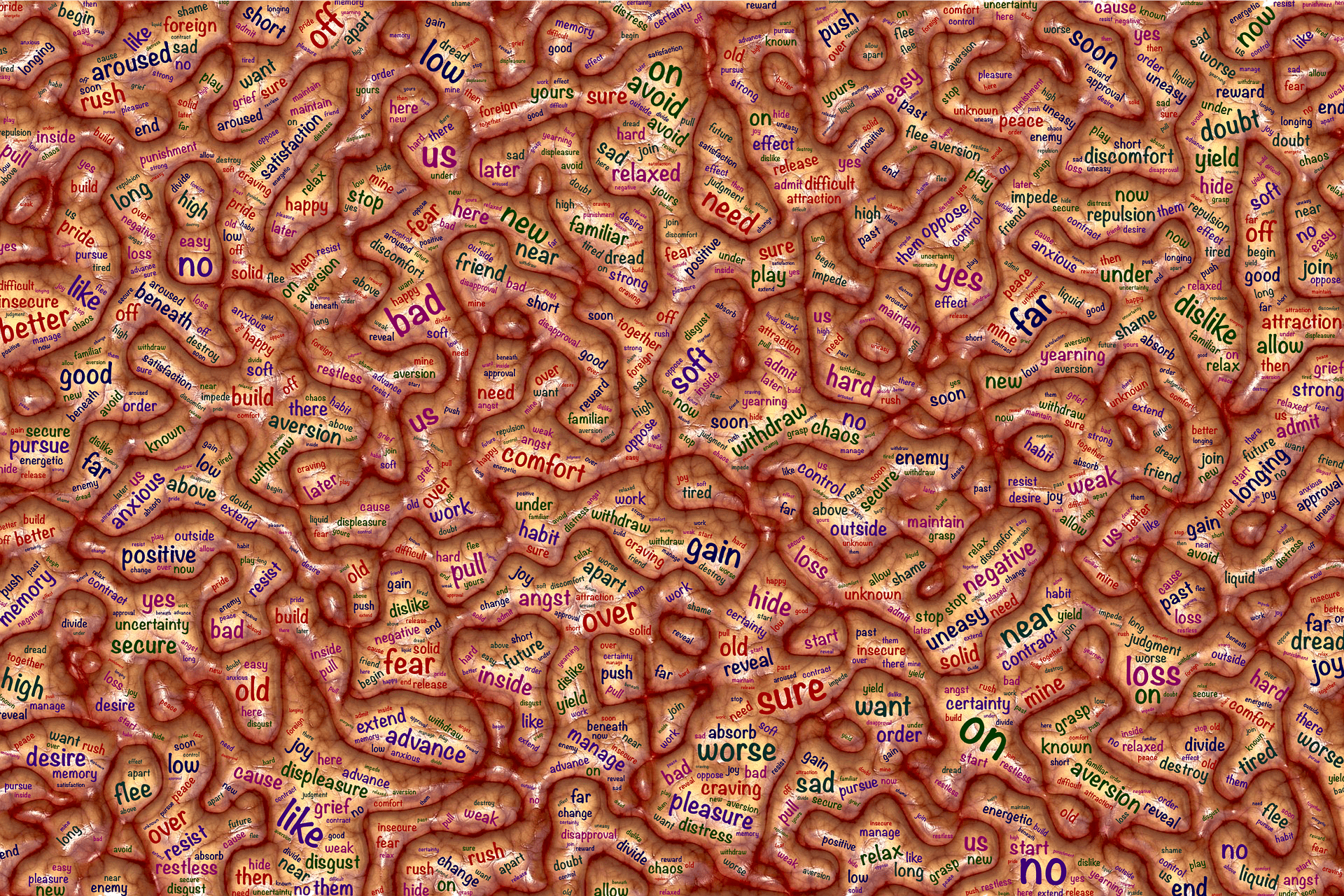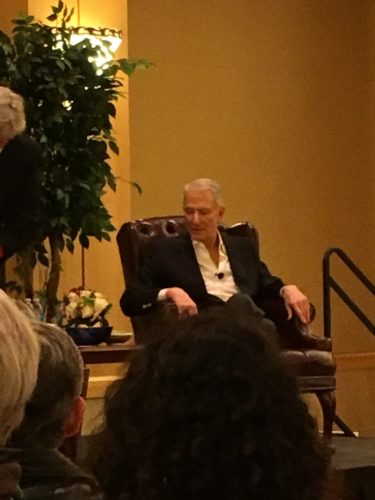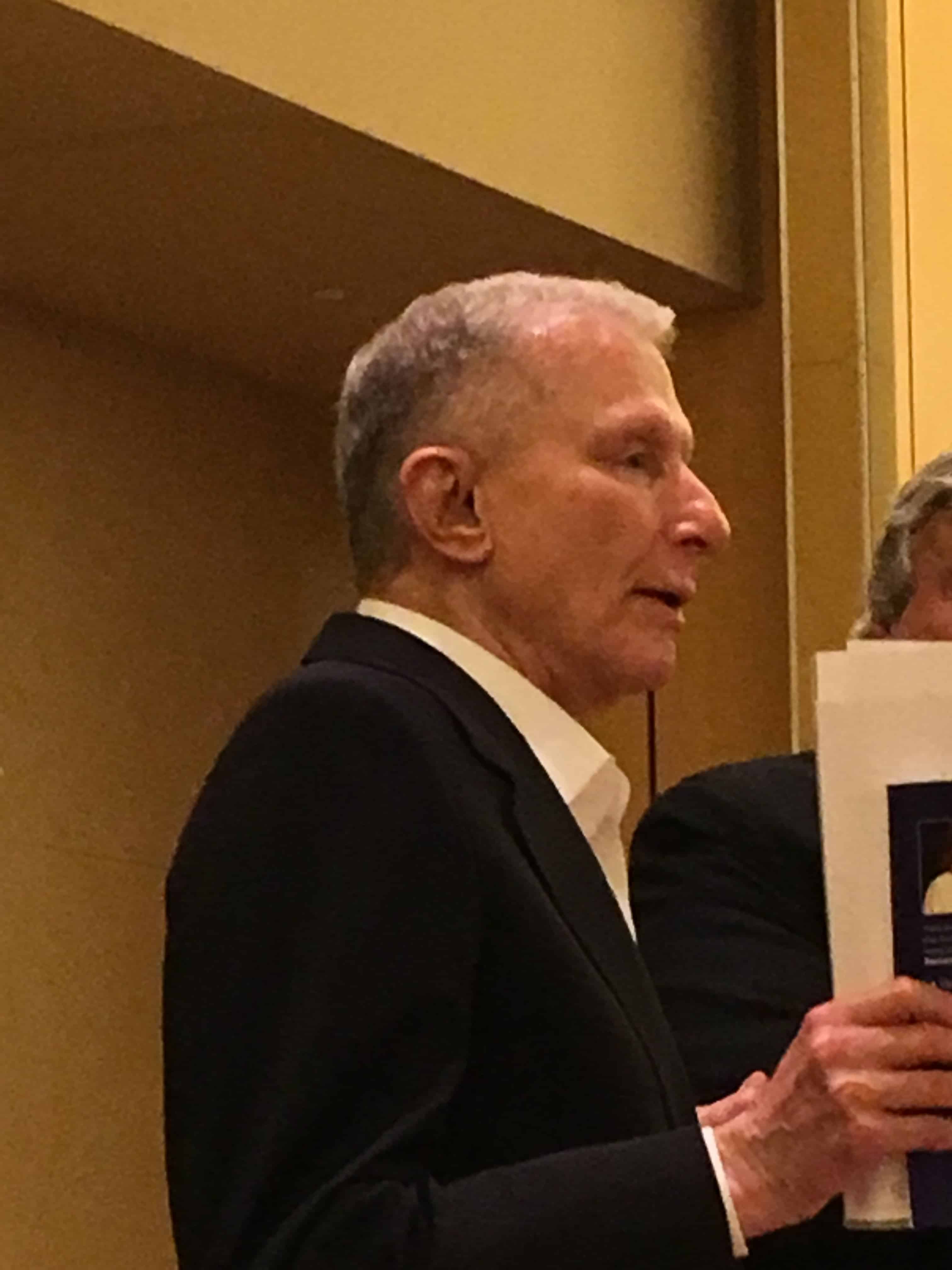Get Free Guides To Ascension & Global Consciousness

At the Center for Compassion and Altruism Research and Education (CCARE), its founder Dr. James Doty interviewed Werner Erhard in a fireside chat-style gathering last month. Those who aren’t familiar with CCARE, it is located at the Stanford University School of Medicine and was founded in 2008 with the goal of promoting, supporting, and conducting rigorous scientific studies of compassion and altruistic behavior.
The organization has collaborated with a number of prominent neuroscientists, behavioral scientists, geneticists and biomedical researchers to closely examine the physiological and psychological correlates of compassion and altruism. And, they throw events like this to educate and extend their message through guest speakers and more.

If you’re 50 years or older, chances are you may know or at least have heard of Werner Erhard and perhaps have even done one of his earlier seminars in the 1970’s and 1980’s. His events at the time were formerly called Erhard Seminars Training but more widely known in the industry as EST or Est or est.
Although I never officially did the est course (officially called the est Standard Training), which was an in tense two-weekend (60-hour) course, I have done two levels of Landmark Forum in my twenties when I lived in Boston.
The est seminars originally led by Werner Erhard aimed “to transform one’s ability to experience living so that the situations one had been trying to change or had been putting up with, clear up just in the process of life itself”. Est is an outgrowth of the Human Potential Movement of the 1960’s and 1970’s — it was later replaced by a ‘gentler’ equivalent called The Forum, but taught by many of the same folks.
Founder Werner Erhard was self-taught and his work certainly inspired many at a time when there were few events like this in the market.

An attendee later told me that she was surprised by his humbleness, although if presenting at a center dedicated to compassion, humility and authenticity should be at the core of your talk. Of course, both are part of his teachings too.
While his seminars over the years have helped a lot of people, some of whom I know, some say it had a negative impact.
As est grew, so did criticism. It was accused of mind control and labeled a cult.
In fact, many people I knew who ‘drafted’ me into the Landmark Forum (compared to est by many), would often use compare and contrast language to describe the two. “Well, est may have been strict and more cult-like, but Landmark isn’t like that.” Landmark btw, was started by former est employees and the organization still throws seminars and events today. For what it’s worth, I no longer hear negative chatter about their events, but I haven’t done anything with Landmark in two decades.
James Doty asked Werner Erhard at the event, “at the time you started est, it was a forceful reflection for people. Would everyone agree with that?” The audience laughs.
Werner says, “people knew what they were going into. They knew it wasn’t going to be Sunday school. They didn’t know what was going to happen – there was an environment in those days in which things were a bit loosey goosey, so it required a certain wake up call.” He continued:
“Most of us wind up pretty arrogant about who we are. When I go through life, I need someone to tell me that’s not who you are. It takes up a certain wake up call to recognize that I don’t listen. I don’t listen to what you said and I can’t get over to where you are and so on.”
Doty pipes in, “Compassion is one of the most important things out there.” The notion of course is that you don’t want to become a person who puts limitations on reaching your full potential because of fear. As you integrate more compassion and love into your day-to-day, you have more room and confidence to live your true purpose, your full potential….
Werner touts that studies have demonstrated scientifically the extraordinary effect that est and these times of trainings have had on people. He says, “studies have shown that people who have taken est are more compassionate, motivated and willing to give services to others.”
Although I haven’t gone through the est course, I did some training at Landmark as I mentioned and truth be told, I did find some cult behavior at the event — there were so many rules at the time I took the course, that I had a hard time implementing language I had to use (precisely).
Doing so alienated everyone around me because quite frankly, I know as a long time communications specialist, that you need to code switch and speak the same ‘language’ as the person you are communicating to, or the very thing you’re trying to do (break down fear and be more authentic) backfires. Breathe in (or lean in) to where people are and then show up authentic is much more effective in my experience than using a ‘given’ language from a program to ‘force’ people to open up and ‘see’ you. Note that this is what it ‘felt’ like to me at the time.
That said, I will be the first to say that cult-like in my experience as aspects of it were, Landmark left me with valuable insights into my own life and how to show up for others in a more meaningful way.
 In addition to meeting some fascinating people who at the very least, wanted to open up more, I also left with a set of tools that were a foundation for other trainings I did with Tony Robbins, Eckhard Tolle and other personal development gurus over a twenty year period.
In addition to meeting some fascinating people who at the very least, wanted to open up more, I also left with a set of tools that were a foundation for other trainings I did with Tony Robbins, Eckhard Tolle and other personal development gurus over a twenty year period.
Many of these teachers use the same premise of compassion and authenticity, but change the rules, codes and language around and for this reason, I find programs like est and Landmark useful. I’ll add the important piece: don’t get ‘lost’ in the process of running from course-to-course like these — be open…YES, be open, especially to the truth of how you show up in life and allow the tools that they give you to transform how you show up. If the tools help you leave a fear-based YOU behind, then this is a good thing. I think that est (later Forum) and Landmark do help move that process along if you don’t get caught up in (or pissed off by) the rules.
James and Werner also spoke to compassion and ruthless compassion asserting that when you are able to see that others are suffering just like you are, it’s easier to be empathetic and compassionate. Hear hear!
Werner Erhard had glowing things to say about James Doty and I have to admit, I’m a huge fan of his work and the organization. Werner applauds Doty‘s ability to convey compassion in a powerful way and get it out to the world.
Compassion and empathy are so important to our well-being that any research pointing to implementing it in work or play, should have impressive numbers. It should be no surprise that the Center for Compassion and Altruism Research and Education has His Holiness the Dalai Lama as a founding benefactor.
While Doty‘s work centers around working with scientists from a number of disciplines to examine the neural bases for compassion and altruism, he is also an inventor, entrepreneur and philanthropist and holds multiple patents. Additionally, he has supported research, provided scholarships and endowed chairs at multiple universities.
Werner brought up reasons why est was successful in its approach sesveral times throughout the interview, including a testimonial who said something along the lines of: “I was on a journey to open up more. Many wars inside me have ceased and a person of integrity began to emerge.”
So, what’s Werner Erhard (born as John Paul Rosenberg — many may not know this) doing today?
Since est, he has has written and lectured widely on critical thinking, transformational models and applications, integrity, performance, leadership and individual and organizational transformation.

He’s also done a lot of wonderful things over the years, such as co-founding the Hunger Project (an NGO accredited to the United Nations) in which more than 4 million people have participated in establishing the end of hunger as an idea whose time has come.
Today, he consults to Landmark Worldwide, lectures and presents to others about these ideas. Much of Erhard’s scholarly writing can be found on his author‘s page in the Social Science Research Network (SSRN).
You can also explore his website as well of course. I should also mention an event that he’s spearheading with Dr. Joseph DiMaggio in New York City next spring. In April 2018, Landmark will present a three-day developmental event called Being a Master of Life: What It Takes. The event was made available to Landmark Graduates in the New York City area and sold out almost immediately.
Being a Master of Life: What It Takes, is about what lies beyond being smart, effective, successful, and admired – beyond the limits of what it currently means to be a human being. It is about what is there for us human beings beyond the possibilities we may already be at work on realizing.
Most of us believe that there is something extra special about such people – that is, there is something extra special about people who seem to have mastered life. However, while innately ordinary, masters of life do see life and make sense of life differently than most of us do. And it is this unique way that they see (perceive) life and make sense of (comprehend) life that leaves them interacting with life as a master – that is, naturally being extraordinarily effective while enjoying an exceptionally high quality of life.
The event is aimed at getting you to be your own master of life as a natural of self-expression. Since it is sold out, they hope to be providing more in the future.
With reporting and input from Dr. Gabriele Hilberg who captured notes on the evening.